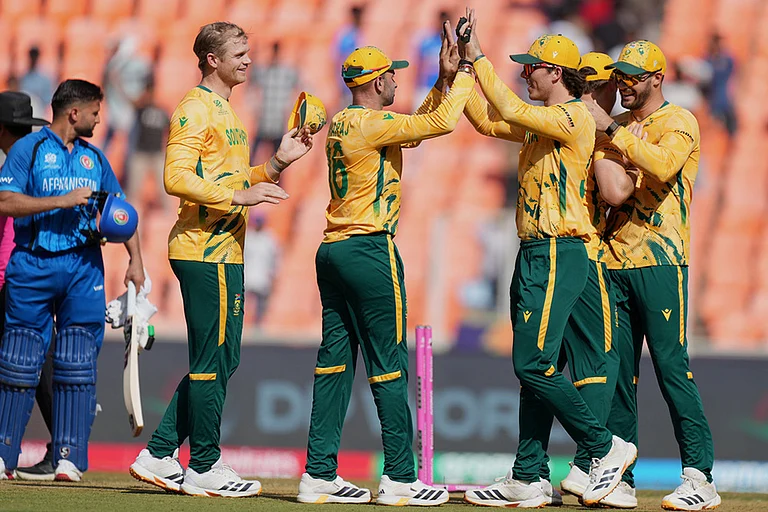Jayanta Mahapatra, born in Cuttack into an ordinary middle-class Hindu family, converted to Christianity due to poverty. A college Physics teacher, he started writing poetry at 40 when many poets quit and became India’s one the most celebrated poets, and perhaps, the country’s best-known Indian-English poet in the West.
Mahapatra, Nissim Ezekiel, and A.K. Ramanujan, the famous triumvirate of Indian poets —one from the East, one from the West, and one from the South— ushered in a new age of Indian-English poetry. It was not comfortable for poets of India to write in English and live in Indian ethos and ethnicities as well. For Mahapatra, it was a war between ‘Daffodils’ and ‘Rajnigandha’ (an East-Indian flower), between ‘Canterberry Church’ and ‘Puri Temple’. To write India or not to write England was a dilemma that went deep down into the psyche of the poets who created the space for the postcolonial write-back generation of writers.
Mahapatra wrote Odisha in English as Allen Ginsberg wrote California in American, or Nicannor Parra wrote Santiago in Spanish. A poem is written to be read and recited, but when Mahapatra started writing poems in English, there was no area in India, and till date, no state in India that predominantly uses English. There was a ready Odia readership for Odia poetry, but a thin, elite slice of the bureaucracy and public administration was the only hope for Indian-English poetry. In ‘Neither Alien Nor Postmodern: Jayanta Mahapatra’s Poetry from India’, John Oliver Perry writes, “It is still common to hear charges that anyone writing poetry in English must be a pretentious ‘brown sahib’ doomed to gaffes of ‘Babu’ grammar.’’’ This was an observation written 40 years ago. But it still persists even after the globalisation of ethnic India.
Now, poets live in a paradox. In 2016 when I was attending America’s world-famous International Writing Programme (IWP) at the University of Iowa, I was taken aback when a fellow writer asked me, “You write in English?” I said “No, I write in Bengali.” It jolted my senses when, a step further, he honestly asked, ‘‘Is there any other language in India beyond English?’’
Now, after the commercial success of Indian novels in English, the world is ready with a red carpet welcome for Indian-English writers, but Indian-English poets can hardly win any international prize or publishing accolade. In the West, to quote Salman Rushdie is a mandatory gesture while Tagore who took the West by storm now goes muted. Mahapatra, in his gentle war with this paranoia, brilliantly survived the paradox. He is the first Indian-English poet to have received the Sahitya Akademi Award and then the Padma Shri. He has been widely translated into Indian languages. He never missed the link with his mother tongue as he continued to write in Odia and loved to translate from Odia into English. Whenever Jayanta da and I spoke over the telephone, he preferred Bengali. He became Sahitya Akademi Fellow without a single word of debate.
In an interview with Swain and Merchant, Mahapatra said, “I would be writing like an Oriya, writing the poems that ‘belong’ to Orissa, from inside the Oriya culture I’m in…”
His lines are his lines, nobody has to certify them as Indian: “At Puri, the crows / the one wide street / lolls out like a giant tongue. / Five faceless lepers move aside / as a priest passes by / and at the street’s end / the crowds thronging the temple door: / a huge holy flower / swaying in the wind of greater reasons.”
I spent a whole day with him at his home in Tinkonia Bagicha, Cuttack, a decade ago when he was feeble by grief but stronger by tranquility. The death of his wife and his son made him silent like a stone but the stone at midnight used to whisper lines of poetry. His loneliness was a new diaspora of his soul. The woman who was his domestic help cooked lunch for us and Jayanta da humbly gave her instructions in the kitchen. It was a winter day warm with poetry and seeped in love and respect for the man who silently revolutionised Indian-English poetry without any slogan or bullet. His calmness of mind had never been a lull before a storm, but it was the wisdom of a fakir that quintessentially made him a poet. Arun Kolatkar, another Indian-English poet, is absolutely right as he said, “His deep poetry exudes quiet confidence.”
He has left behind a will which seems to have been his last poem for posterity. He writes in it, “My body, after being washed, is to be attired in white panjabi and pyjamas and laid out in an appropriate place (my room perhaps, or whatever is decided by Babu). His would be the final say in all matters related to my funeral. My body must not be taken anywhere (like an exhibit), not to Ravenshaw University or to Saila Bala Women’s College, where I taught. Later, my body should be cremated, and not buried in the Christian graveyard. No coffin should be made for this purpose.”
In the last paragraph he writes an elegy on his own death—“Finally, Babu will take charge of the urn containing my ashes after the cremation, and hand it over to Durga Behera, who would immerse the ashes at a convenient time at Chandrabhaga, by the sea.”—Jayanta Mahapatra, 20 June, 2023, Ratha Yatra Day
I’m sure that the world would be a witness to his poetry that will resurrect after his ashes will melt and mingle with the water of Chandrabhaga, the river, and his poetry magazine shall continue beyond borders. In an interview, he once said, “I have no message to give except a smile.” And a smile, as we know, has no border.
(Poet and professor Subodh Sarkar is a recipient of the Sahitya Akademi Award. He taught English at the University of Iowa, USA and now teaches at City College, Kolkata.)





















